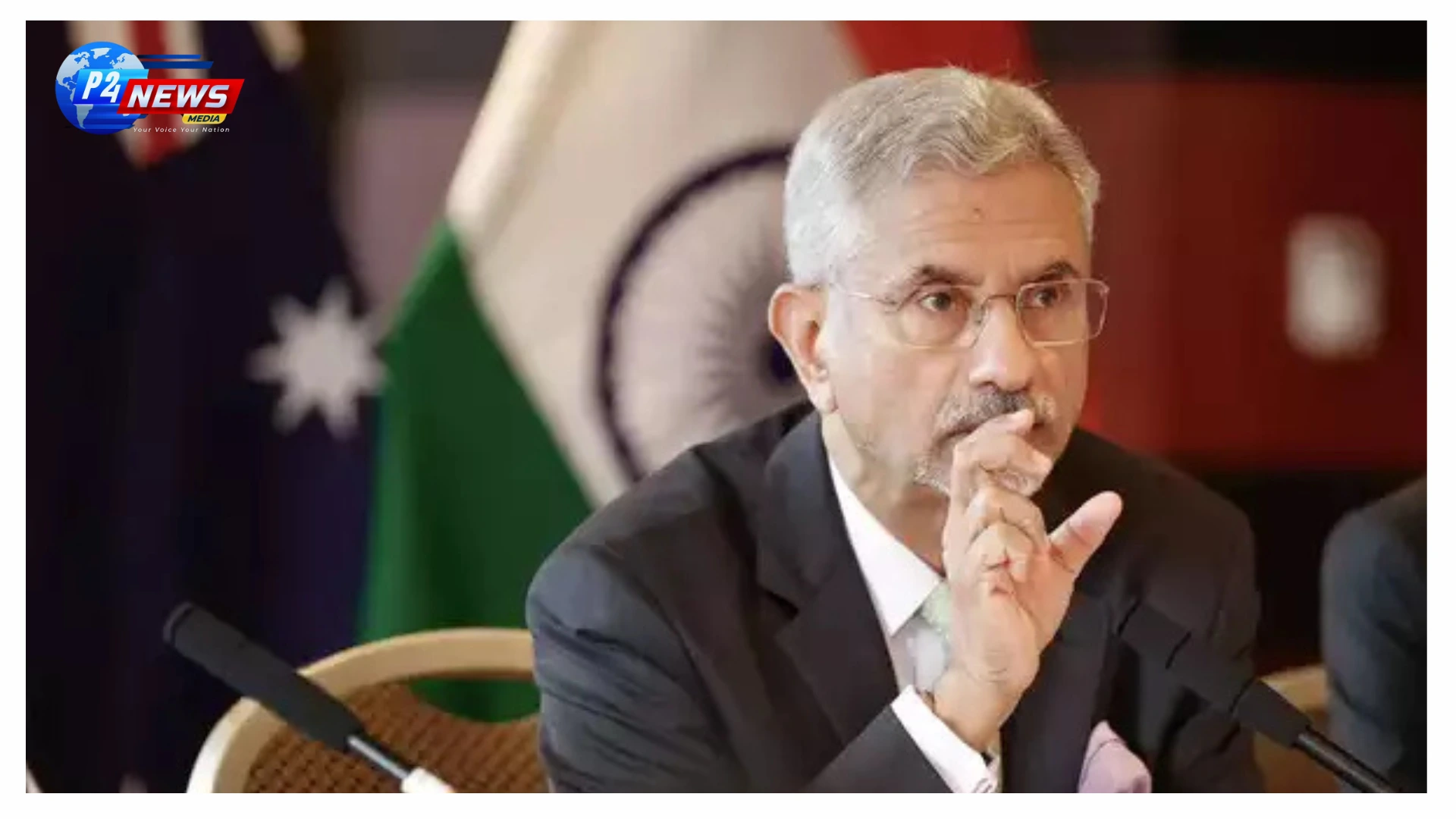India rebukes Canada for its censorship of Australia Today, highlighting hypocrisy regarding free speech after S. Jaishankar's interview aired. The current diplomatic tensions between India and Canada escalate as accusations mount.
India rebukes Canada for its censorship of Australia Today, highlighting hypocrisy regarding free speech after S. Jaishankar's interview aired. The current diplomatic tensions between India and Canada escalate as accusations mount.
India has voiced strong disapproval following reports that Canadian authorities have restricted access to the social media platforms of Australia Today, an Australian news outlet. This occurred shortly after the outlet broadcasted a press conference featuring Indian External Affairs Minister S. Jaishankar alongside Australian Foreign Minister Penny Wong. India's response centers on accusations of double standards regarding freedoms of expression in Canada.
During his recent trip to Australia, which concluded on Thursday, S. Jaishankar engaged with Australian Prime Minister Anthony Albanese and co-chaired the 15th Foreign Ministers' Framework Dialogue with Penny Wong. This diplomatic endeavor aimed to bolster connections between India and Australia, focusing on key aspects such as regional security and mutual cooperation.
When questioned about the blocking of Australia Today’s social media accounts in Canada, Ministry of External Affairs representative Randhir Jaiswal expressed profound disappointment, especially given that these accounts became inaccessible just hours after the broadcast of Jaishankar's press conference. Jaiswal noted that Australia Today is a reputable outlet among the Indian community and argued that Canada’s actions reflect inconsistency in its commitment to free expression.
Jaiswal remarked that Australia Today had featured several articles and an interview with Jaishankar covering critical topics during his visit. He said, "We were taken aback. This appears odd to us. These actions further underscore Canada’s hypocrisy regarding freedom of speech." In his media engagements in Australia, Jaishankar raised three pivotal concerns: Canada's pattern of unfounded allegations, surveillance of Indian diplomats, and the political space afforded to anti-India factions. These issues are believed to be contributing factors behind the Canadian government's decision to block access to the Australian news outlet.
The diplomatic tension between India and Canada has intensified in recent times. Just last week, India revealed that some of its consular officials had been notified by the Canadian government about being subjected to audio and video surveillance. India condemned these actions as a blatant breach of diplomatic protocols and lodged a formal complaint with Canadian authorities, characterizing the behavior as harassment.
Moreover, India has been compelled to cancel several consular camps in Toronto due to inadequacies in security guarantees from Canadian officials. This decision followed an attack on a Hindu temple in Brampton on November 3, where one of the consular camps was taking place. Prime Minister Narendra Modi denounced the attack as a cowardly strategy to intimidate Indian diplomats within Canada.
Relations between India and Canada have further deteriorated since last year, after unproven allegations made by Canadian Prime Minister Justin Trudeau, claiming involvement of Indian agents in the assassination of Khalistani activist Hardeep Singh Nijjar. India has consistently refuted these claims and demanded that Canada provide credible evidence supporting its allegations. The situation escalated last month when Canada labeled India's High Commissioner as a "person of interest" in connection to Nijjar's death, prompting India to deem this accusation as absurd and respond by recalling its High Commissioner and expelling six Canadian diplomats from Indian soil.
This ongoing diplomatic impasse highlights the increasing strain in relations between India and Canada, driven by a continuum of accusations and counter-accusations, coupled with a growing distrust that currently shows no signs of abating. The situation underscores the need for transparent dialogue and a commitment to addressing unresolved issues between the two nations to foster a more stable diplomatic environment.
Like
Dislike
Love
Angry
Sad
Funny
Pray
9th Ayurveda Day in Melbourne: A Celebration of Ayurvedic Innovations and Global Health Impact
November 10, 2024Australia’s Terror Alert Jumps to ‘Probable’: What You Need to Know About the Increased Risk
August 05, 2024🍪 We Value Your Privacy and Experience Hi there! We use cookies to enhance your browsing experience, provide personalized content, and analyze site traffic. By continuing to use our site, you consent to our use of cookies.







Comments 0